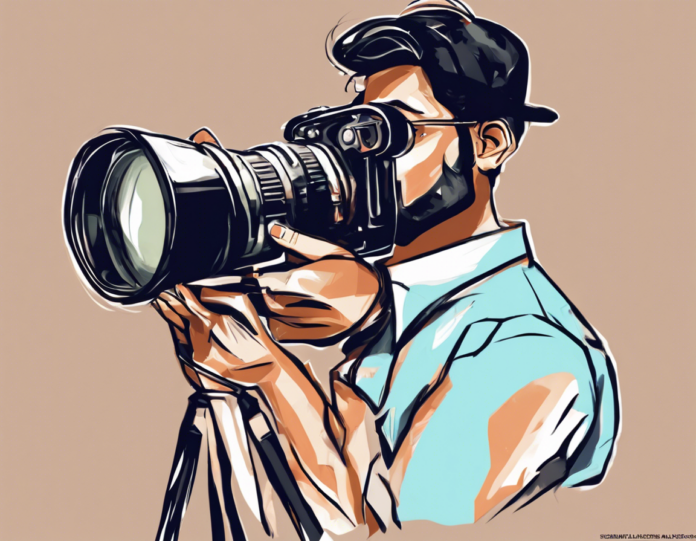As a cameraman, capturing the perfect shot requires a combination of skill, technique, and attention to detail. One crucial aspect of this process is quickly focusing on the subject to ensure a sharp and clear image. Whether you are shooting a fast-paced action scene, a dynamic interview, or a breathtaking landscape, mastering the art of fast and precise focusing can make a significant difference in the quality of your footage. In this article, we will explore various tips and techniques to help you “jaldi focus karo” and elevate your videography skills to the next level.
Understanding Autofocus vs. Manual Focus
Before delving into specific focusing techniques, it is essential to understand the two primary methods of focusing: autofocus and manual focus. While autofocus can be convenient in many situations, it may not always provide the level of precision and control required for certain shots. On the other hand, manual focus allows you to have full control over the focus point, making it particularly useful in challenging lighting conditions or when dealing with moving subjects.
Tips for Quick and Accurate Focusing
-
Pre-Focusing: Anticipate the movement of your subject and pre-focus on the point where you expect the action to take place. This technique can help you capture the decisive moment without wasting precious time trying to focus on a moving target.
-
Back-Button Focus: Assigning the focus function to a separate button on the back of your camera can streamline the focusing process. By decoupling focusing from the shutter button, you can maintain focus on your subject while also having the flexibility to recompose your shot as needed.
-
Zone Focusing: For situations where you need to quickly capture action within a specific distance range, consider using the zone focusing technique. By setting your focus to a predetermined distance, you can minimize the time it takes to acquire focus when the action unfolds within that range.
-
Continuous Autofocus: When shooting moving subjects, such as sports or wildlife, utilizing the continuous autofocus mode can help you maintain sharp focus as the subject moves within the frame. Experiment with different autofocus settings to find the mode that works best for your specific shooting scenario.
Leveraging Focus Assist Tools
Modern cameras offer a range of focus assist tools that can aid you in achieving precise focus quickly. These tools include:
-
Focus Peaking: This feature highlights the areas of the image that are in focus, making it easier to identify the point of focus, especially when using manual focus.
-
Magnification: Enabling magnification allows you to zoom in on a specific area of the frame to fine-tune the focus accurately. This can be particularly useful when shooting with manual focus lenses.
-
Focus Tracking: Some cameras offer sophisticated focus tracking capabilities that help you keep moving subjects in focus seamlessly. Familiarize yourself with these features to make the most of your camera’s autofocus system.
Common Focus Challenges and How to Overcome Them
-
Low Light Conditions: In dimly lit environments, your camera may struggle to acquire focus quickly. To overcome this challenge, consider using a faster lens with a wider aperture, increasing your camera’s ISO sensitivity, or using additional lighting sources to improve visibility.
-
Moving Subjects: When shooting fast-moving subjects, such as athletes or vehicles, predicting their movement and pre-focusing on the anticipated path can help you capture sharp images with ease.
-
Depth of Field Control: Adjusting your aperture settings to control the depth of field can impact the focus plane in your images. Experiment with different aperture values to achieve the desired level of sharpness in your shots.
FAQs (Frequently Asked Questions)
- How can I improve my focusing accuracy when shooting portraits?
-
For portraits, focus on the subject’s eyes to create a strong connection with the viewer. Utilize single-point autofocus mode and adjust the focus point manually for precise eye focus.
-
What is the best way to check focus accuracy after capturing an image?
-
Use your camera’s zoom function to magnify the image on the LCD screen and inspect critical areas for sharpness. Additionally, reviewing images on a computer monitor can provide a more detailed assessment of focus.
-
Is it better to rely on autofocus or manual focus for landscape photography?
-
While autofocus can be sufficient for landscapes with static elements, manual focus allows for more precise control over the focusing point, especially when shooting landscapes with intricate details or when using tilt-shift lenses.
-
How do I prevent focus hunting during video recording?
-
To avoid focus hunting in videos, set your camera to manual focus and use focus peaking or magnification to ensure accurate focus before recording. Test your focus beforehand and make adjustments as needed.
-
What role does camera sensor size play in focusing performance?
- Camera sensor size can affect focusing performance, with larger sensors typically offering better low-light focusing capabilities and more accurate focus tracking. Consider the sensor size of your camera when selecting focusing techniques for different shooting scenarios.
In conclusion, mastering the art of fast and accurate focusing is essential for capturing stunning visuals and telling compelling stories through your lens. By understanding different focusing techniques, leveraging focus assist tools, and overcoming common focus challenges, you can elevate your videography skills and “jaldi focus karo” to create impactful and visually engaging content. Practice regularly, experiment with various focusing methods, and adapt your approach to suit different shooting scenarios to unlock your full creative potential as a cameraman.












